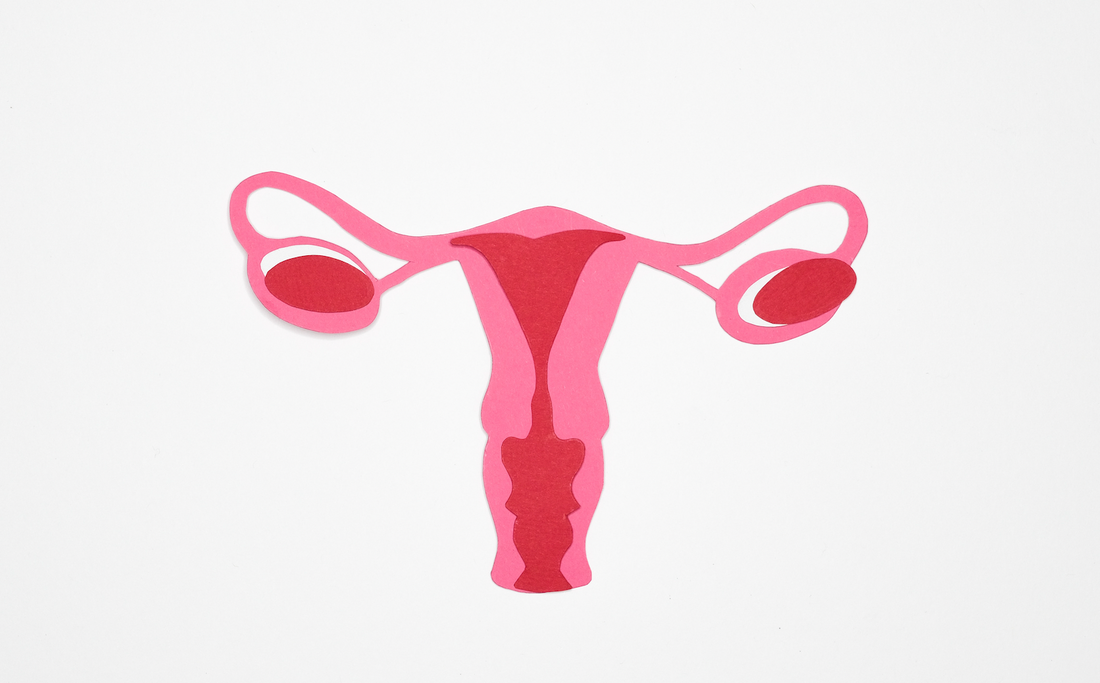
Everything You Need to Know About PCOS
Share
Polycystic ovary syndrome, or PCOS, as it’s more commonly known, can be a significant problem for women and menstruators. Find out what PCOS is, how to recognize PCOS symptoms, and what options are available for PCOS treatment so that you can advocate for yourself or someone you know.
What is PCOS?
Polycystic ovary syndrome is a relatively common condition that affects the female reproductive system. As ‘polycystic ovary syndrome’ is quite a mouthful, it’s most often referred to as PCOS. As the name indicates, PCOS impacts the function of the ovaries, preventing them from working the way they should.
PCOS is a result of abnormal hormone levels in the body, including insulin, which is a hormone that regulates sugar levels in the blood. Increased production of insulin contributes to the increased production of some other hormones such as testosterone, which are considered “male” hormones and are usually only present in small amounts in women.
It is not known what causes polycystic ovarian syndrome, but it likely has a genetic component. This condition impacts menstruators in what are referred to as the child-bearing years, from the age of 15 to 44. PCOS is thought to affect anywhere from 4 to 21% of women of reproductive age (Lizneva et al., 2016). Now that you know the answer to the question ‘what is PCOS?’, let’s take a look at some PCOS symptoms.
What are the PCOS Symptoms You Need to Keep an Eye on?
Being aware of the PCOS symptoms could help you identify whether you or a menstruator you love has polycystic ovary syndrome. PCOS is a syndrome, meaning it is characterized by a group of symptoms related to the ovaries. There are three main features of PCOS and associated PCOS symptoms to look out for. PCOS symptoms can begin around the time of the first period, and the presence of at least two of these may warrant a diagnosis of polycystic ovary syndrome.
1 - Polycystic ovaries
The name ‘polycystic’ means many cysts. When you have polycystic ovary syndrome, many small cyst-like fluid-filled sacs surround the eggs, which causes the ovaries to become enlarged. These are actually follicles, not cysts, which are sacs in which eggs develop. But in women with PCOS, these sacs are not able to release an egg, preventing ovulation from happening. As a result, women with PCOS have difficulty getting pregnant.
2 - Higher than normal androgen levels
Elevated levels of “male” hormones, or androgens, in a menstruator’s body can be a sign of PCOS. Some signs of excess androgen levels are excess hair, most commonly on the face, back, chest, or buttocks. Women with PCOS may also experience weight gain, oily skin, or acne as a result of elevated androgen levels.
3 - Irregular periods or no periods at all
Periods are considered irregular when the length of your menstrual cycle keeps changing and is often shorter or longer than 28 days. In other words, it means that your periods often come early or late. You can look at a menstral charts for more information.
Though it’s common for your period to vary by a few days each time, it is irregular when it is totally unpredictable, and your ovaries do not release eggs regularly. Irregular menstruation can be a sign of many conditions, so one of the above symptoms must also be present for PCOS to be suspected.
What Treatments are Available for Polycystic Ovarian Syndrome as of Now?
There is no cure for PCOS, meaning you can only treat the symptoms. Before PCOS treatment options are explored, your doctor will likely perform some tests to confirm the presence of polycystic ovary syndrome. This may include an ultrasound to check if the ovaries are enlarged, as well as a blood test to check for high levels of androgens. PCOS treatment options include both medication and eating a special PCOS diet.
Medication
Depending on which PCOS symptoms you are experiencing, you may use medicine for relief. For example, there are medicines to treat excessive hair growth and fertility issues. PCOS prevents normal ovulation, which is the regular release of eggs from the ovaries. Birth control medicine can help the ovaries release eggs, though these come with risks such as abdominal bloating, pelvic pain, and an increased chance of twins.
Most women with PCOS are able to get pregnant with treatment. In cases when a menstruator does not plan to get pregnant, PCOS treatment may also involve birth control pills or diabetes medication to reduce insulin and androgen levels.
PCOS Diet
Since PCOS involves elevated levels of insulin, this condition is associated with the development of type 2 diabetes and heart disease. Excess weight can increase insulin levels, which can worsen PCOS symptoms. For menstruators who are overweight, eating a healthy diet low in carbohydrates and losing weight can provide some relief from PCOS symptoms as well as protect against diabetes and heart disease.
Read more: How do you keep your vag clean? and CBD suppositories for cramps
AIMA is All About Supporting Women and Menstruators Throughout All of It
The gender pain gap has prevented the unique health concerns of menstruators from being studied and understood for far too long. AIMA is on a mission to break the silence and provide solutions for period pain and other types of untreated pain that women face.
Motivated by our values of transparency, accountability, scientifically driven solutions, and an unwavering focus on menstruators, we are determined to create a world in which all menstruators have a voice and access to high-quality, effective treatment for historically untreated pain.
Also, if you are looking for vaginal CBD products, you have come to the right place to find it!
